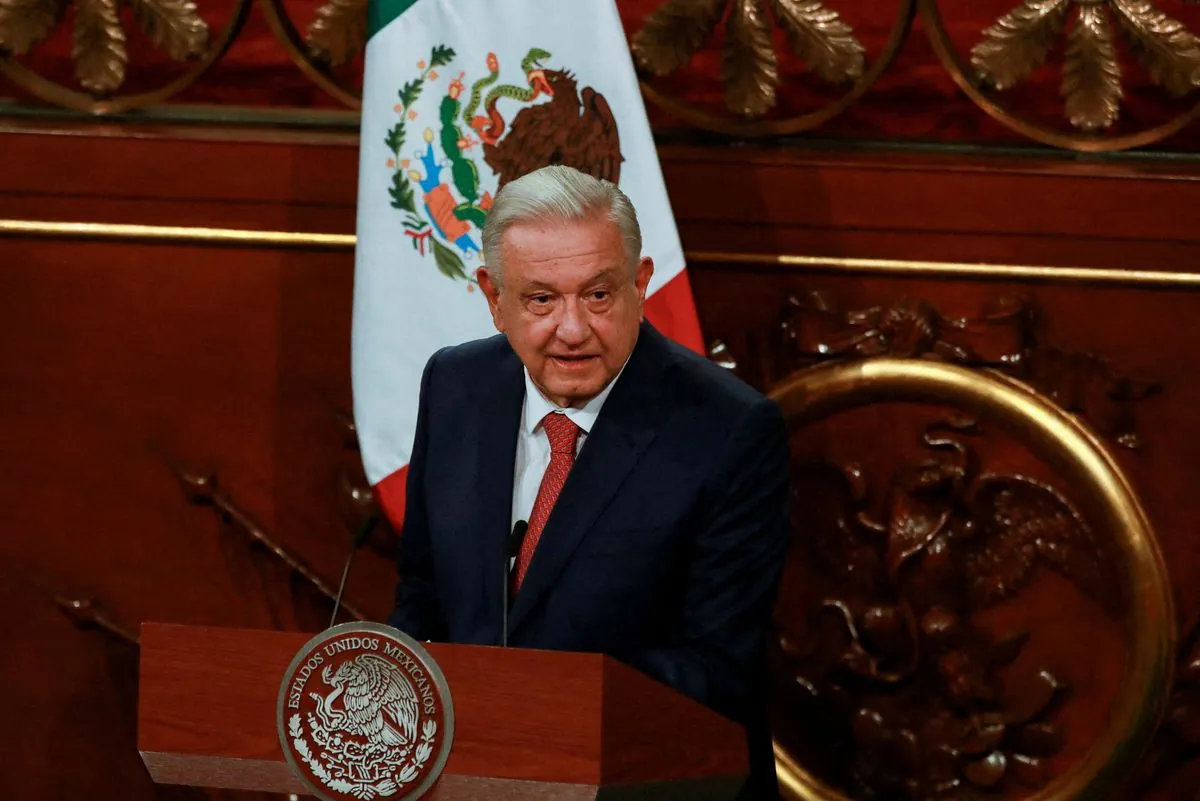Tensions between the United States and Mexico have escalated following U.S. Ambassador Ken Salazar's warning about potential risks to Mexico's democratic system. The dispute centers on President Andrés Manuel López Obrador's proposed constitutional changes to reform the judicial system, which include the direct election of judges.
López Obrador strongly criticized Ambassador Salazar's comments, characterizing them as interventionist. The Mexican president emphasized his country's sovereignty and historical context, referencing past U.S. interventions in Latin America. This disagreement marks the most significant public dispute between the two nations since President Joe Biden took office.
The proposed judicial reforms, set to be introduced in Congress next month, would allow voters to elect judges, including those on the Supreme Court. This change has raised concerns about potential drug cartel influence on the judiciary and its impact on Mexico's democracy.
Critics argue that the reforms could weaken Mexico's democratic institutions. More than 50,000 judicial workers have initiated an indefinite strike in opposition to the changes. Business leaders have expressed worries about a potential decline in foreign investment, with some financial institutions downgrading their investment recommendations for Mexico.
The dispute occurs at a crucial time for U.S.-Mexico relations, particularly regarding migration management. Mexico has played a vital role in reducing migrant apprehensions at the U.S. border, which have decreased by half since January. This cooperation has been significant for the Biden administration and Vice President Kamala Harris's presidential campaign.
"The plan removes the necessary requirements of having the highest qualifications for judges and reduces the required years of experience."
López Obrador and his successor, Claudia Sheinbaum, defend the reforms, citing their recent electoral mandate and the need to address corruption in the judiciary. They argue that the changes will lead to an improved justice system in Mexico.
This situation highlights the complex relationship between the United States and Mexico, which are major trading partners. The U.S.-Mexico border, spanning approximately 1,954 miles, underscores the geographical and economic ties between the two nations. Their diplomatic relations, established in 1822, have weathered numerous challenges over the years.
Mexico's current democratic multi-party system, in place since 2000, is now facing a significant test with these proposed reforms. The country's Supreme Court, established in 1817, consists of 11 justices and operates within a civil law system, distinct from the U.S. common law system.
As Mexico navigates this period of potential constitutional change, the international community watches closely. The outcome of these reforms could have far-reaching implications for Mexico's democracy, its economy, and its relationships with key allies like the United States.
